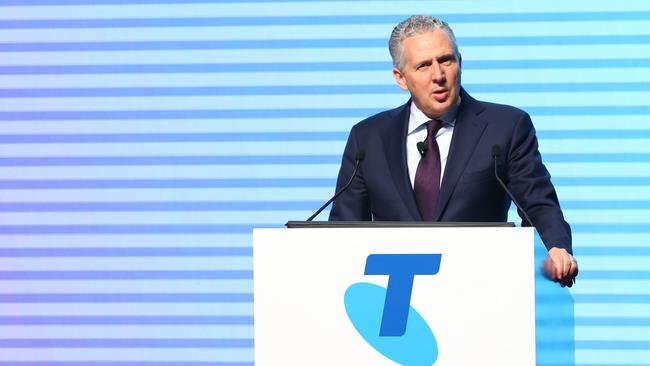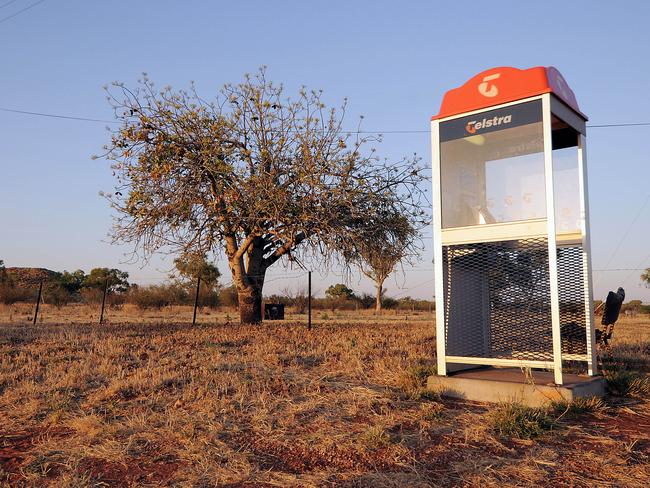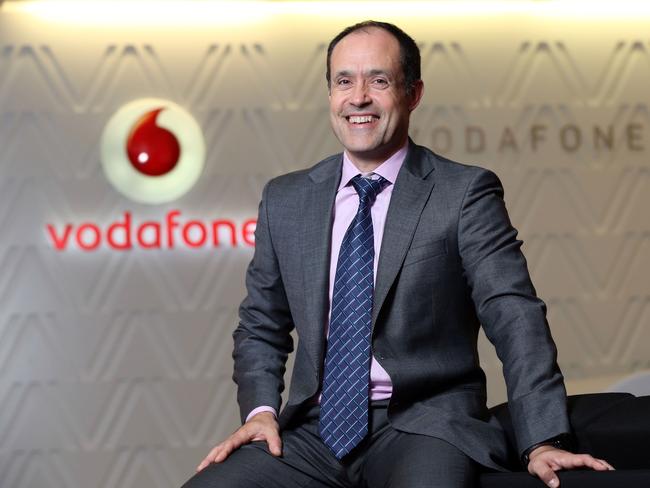Productivity Commission slams Telstra’s USO agreement as anti-competitive and outdated
TELSTRA is getting billions of dollars from taxpayers, and billions more from its competitors, in an absurdly sweet deal.

TELSTRA could soon be stripped of a long-running deal that sees the company receive billions in funding from the taxpayer and its competitors in the industry.
The government’s Productivity Commission has called for a major overhaul of an agreement between the government and Telstra known as the Telecommunications Universal Service Obligation (TUSO or USO), which mandates that every Australian has access to a voice-based telephone service.
The 20-year contract, which is set to run until 2032, means the country’s major telco receives $300 million a year in funding to ensure those who aren’t catered to by the market have access to a standard telephone service.
As part of the agreement Telstra provides payphones in all Australian towns and makes sure all Australians have access to a reliable phone line.
Over the 20-year contract, nearly $3 billion is funded by taxpayers, with the remaining $3 billion coming from Telstra and other telco companies via a levy. This means the likes of TPG, Optus and Vodafone subsidise Telstra to deliver phone services to Australians in the bush, including payphones.
But a draft inquiry report by the Productivity Commission released Tuesday has called on the government to scrap parts of the current agreement, calling it “anachronistic” and “obsolete” just four years after it was introduced.
The recommendations largely centre on the changing telecommunications environment in Australia with the availability of better mobile technology as well as the impending completion of the NBN rollout, due to reach all Australians by 2020.
“In a digital age, the current obligation ... is anachronistic and needs to change,” Commissioner Paul Lindwall said.
“Once rolled out to all Australians, the NBN will be the foundation on which a future broadband-based telecommunications universal service policy should be built. A completed NBN, which provides broadband and voice services to all Australians, will make the current TUSO obsolete.”
Despite potential difficulties in dismantling the agreement due to its narrow terms, the report “recommends that the TUSO be phased out as soon as practicable” and be “reframed to provide a baseline broadband service to all Australian premises” which can increasingly provide a superior voice service.

Complaints about the current agreement have often centred on the lack of transparency about how Telstra spends the money, the outdated technology mandated in the contract and the manner in which it distorts competition in the telco market.
The draft report has recommended the government ditch the “one-size-fits all” approach and instead focuses on targeted policies that address specific needs.
“Any further government intervention should harness markets while closely targeting particular user needs,” the report said pointing to the importance of initiatives such as the government’s mobile black spots programs to service gaps in the market.
The report agrees with complaints from Telstra’s competitors saying “the current TUSO effectively stymies competition”.
“To avoid adverse impacts on competition, the costing of government programs to address any gaps should be made transparent and subject to competitive tendering processes where feasible,” the report states.
“The narrowly targeted scope and small scale of the programs under the Commission’s proposals tips the balance towards funding from general government revenue as opposed to an industry levy.”
A LONG-RUNNING BATTLE
For its part, Telstra largely wants to keep the USO in its current form for as long as it can but would like to see the rules around the use of different technologies relaxed.
But in terms of providing service, the company argues it should remain in its current form at least until the NBN rollout is entirely complete.
Vodafone on the other hand has led the charge against the current deal calling it “opaque, inefficient, inflexible and (an) outdated model which delivers poor outcomes for consumers at the cost of substantial distortions to competition,” in its report to the Commission.
Senior lecturer in political science at the school of government and policy at the University of Canberra, Michael De Percy, told news.com.au in August that it was clear the agreement was “leftover from the past”.
“It’s fairly obvious that it needs to be more transparent,” he said. “Because it’s opaque and Telstra wants to keep it, it’s obvious that it’s to their advantage.”
Telstra does not have to disclose how it uses the money ($253 million a year for copper and $44 million for payphones) it receives — something Vodafone’s chief strategy officer and corporate affairs director Dan Lloyd labelled “shocking”.
“We’re delighted that someone has finally shed some light on what we had always said was probably a very problematic system, but we’re actually pretty astonished at what seems to be a complete lack of transparency and accountability in the arrangements,” he told news.com.au.
“The whole point of the system is to subsidise loss-making copper lines in the NBN fixed wireless zone and payphones but there isn’t even the transparency to government about whether they’re actually getting those services. There doesn’t even seem to be any incentive or penalty for Telstra to maintain those services.
“Essentially what they’re saying is that there’s no transparency to government that it is getting what it and the industry is paying for.
“Every time they (Telstra) shut a service down, they pocket the difference.”
It’s not the only war Vodafone is currently waging against Telstra. An inquiry being conducted by the ACCC into mandated national roaming is also being played out at the moment with Vodafone desperately hoping the government steps in to set prices for the amount dominant telcos, mainly Telstra, charge other service providers to use their infrastructure to provide mobile service to regional Australia.

Telstra said it remains supportive of changes being made to the USO but said it will take some time to properly consider all the implications for remote Australians.
“The current USO agreement was negotiated in good faith with the Australian Government and has been successfully delivering on a policy set by the government. Funding to deliver the USO comes from both industry and government, and Telstra is the single largest contributor of funds,” a spokesman told news.com.au.
“A transition to NBN becoming the wholesale Universal Service Provider requires them to be operating a truly national network capable of delivering a good quality voice service on demand, something that would not be possible at the moment,” the company said.
“We need to make sure that we fully understand the impacts this could have on customers before taking any action that could see remote customers left without a reliable service.”
However Commissioner Paul Lindwall did not mince his words when writing the report, meaning dramatic change in surely inevitable.
“The weight of the evidence suggests that the TUSO is no longer fit for purpose,” he said.
“(It) no longer serves the best interests of the Australian community.”
The report recommends three different options to rectify the situation. The first, which took some in the industry by surprise suggests amending the Telecommunications (Consumer Protection and Service Standards) Act 1999 which underpins the USO agreement in order to radically change its terms.
The other two suggestions were tied to the NBN and recommended either rolling back the USO systematically in conjunction with the rollout of the NBN or waiting to completely abandon it in one fell swoop when the NBN is complete.
Following public hearings across the country early next year giving the public and industry stakeholders the chance for further consultation and input, the final report will be tabled to government in April 2017.




